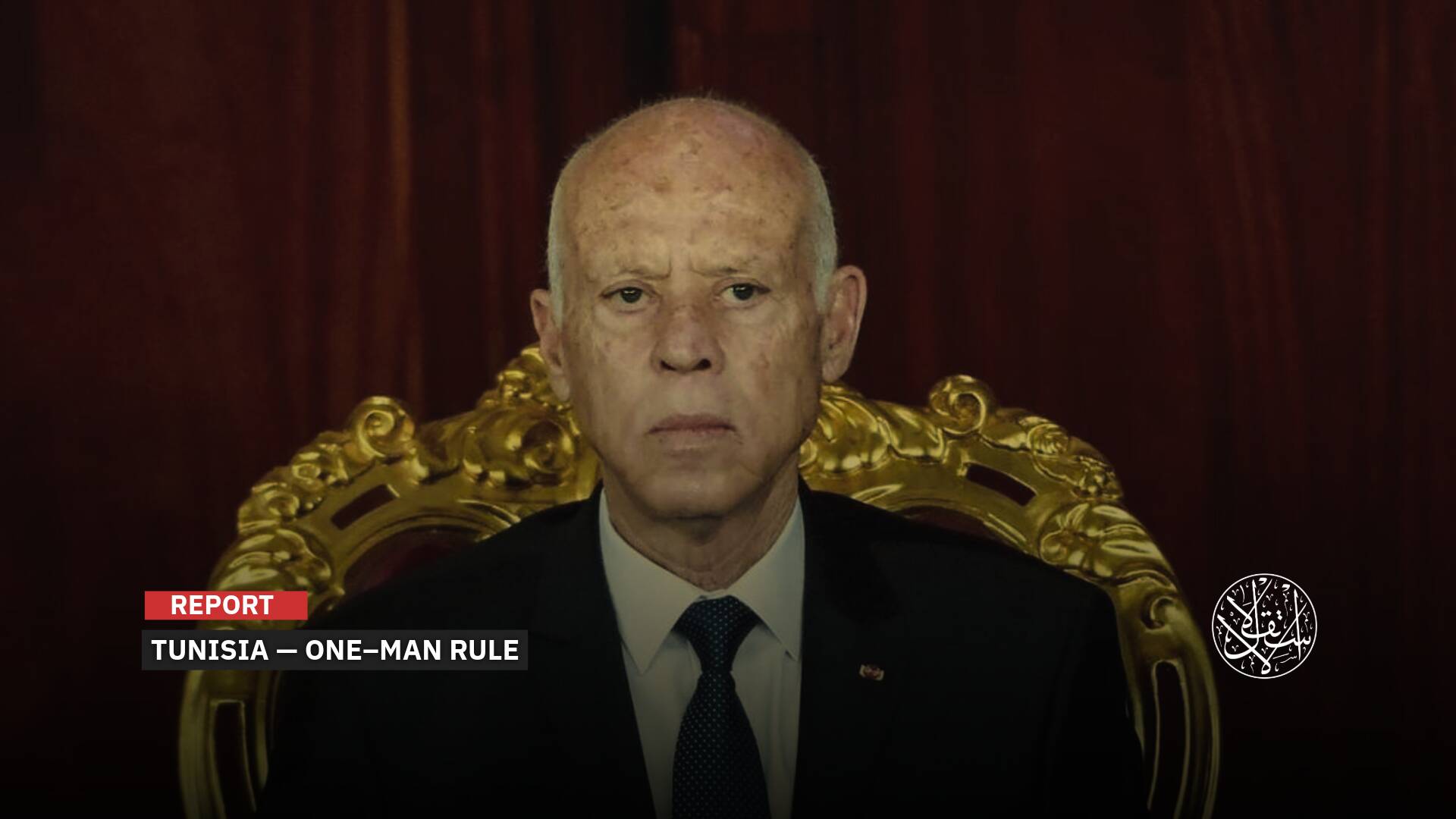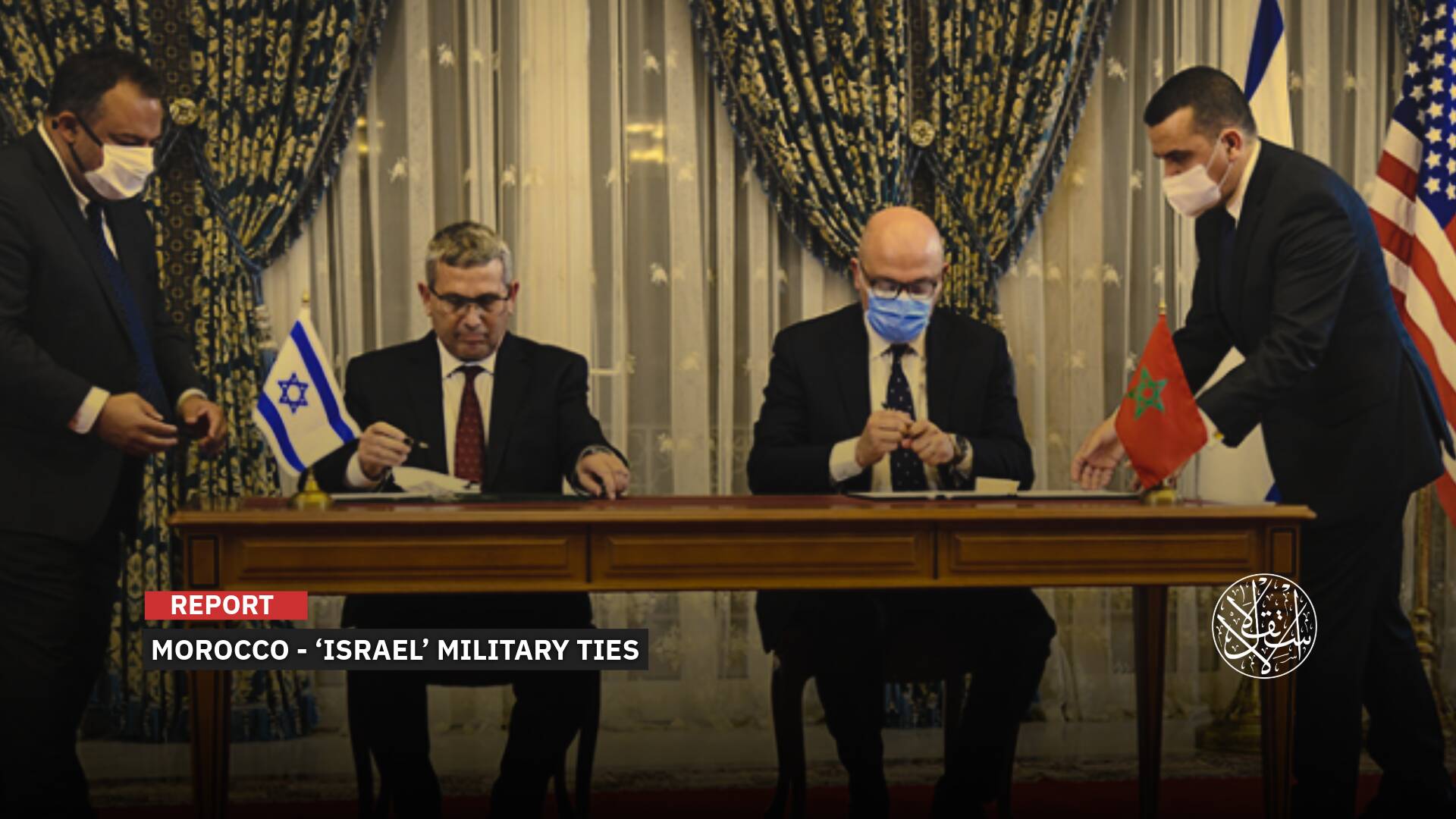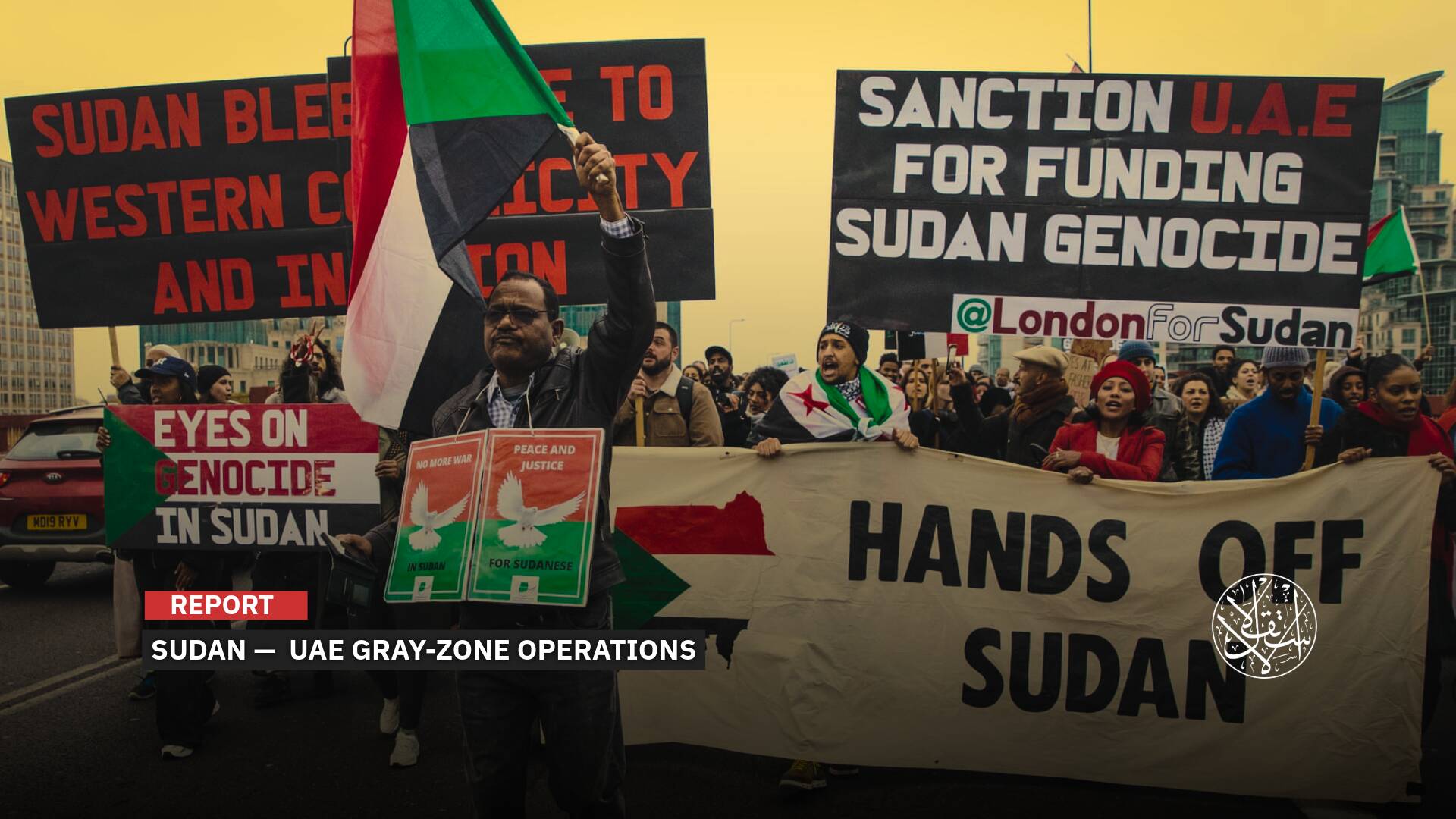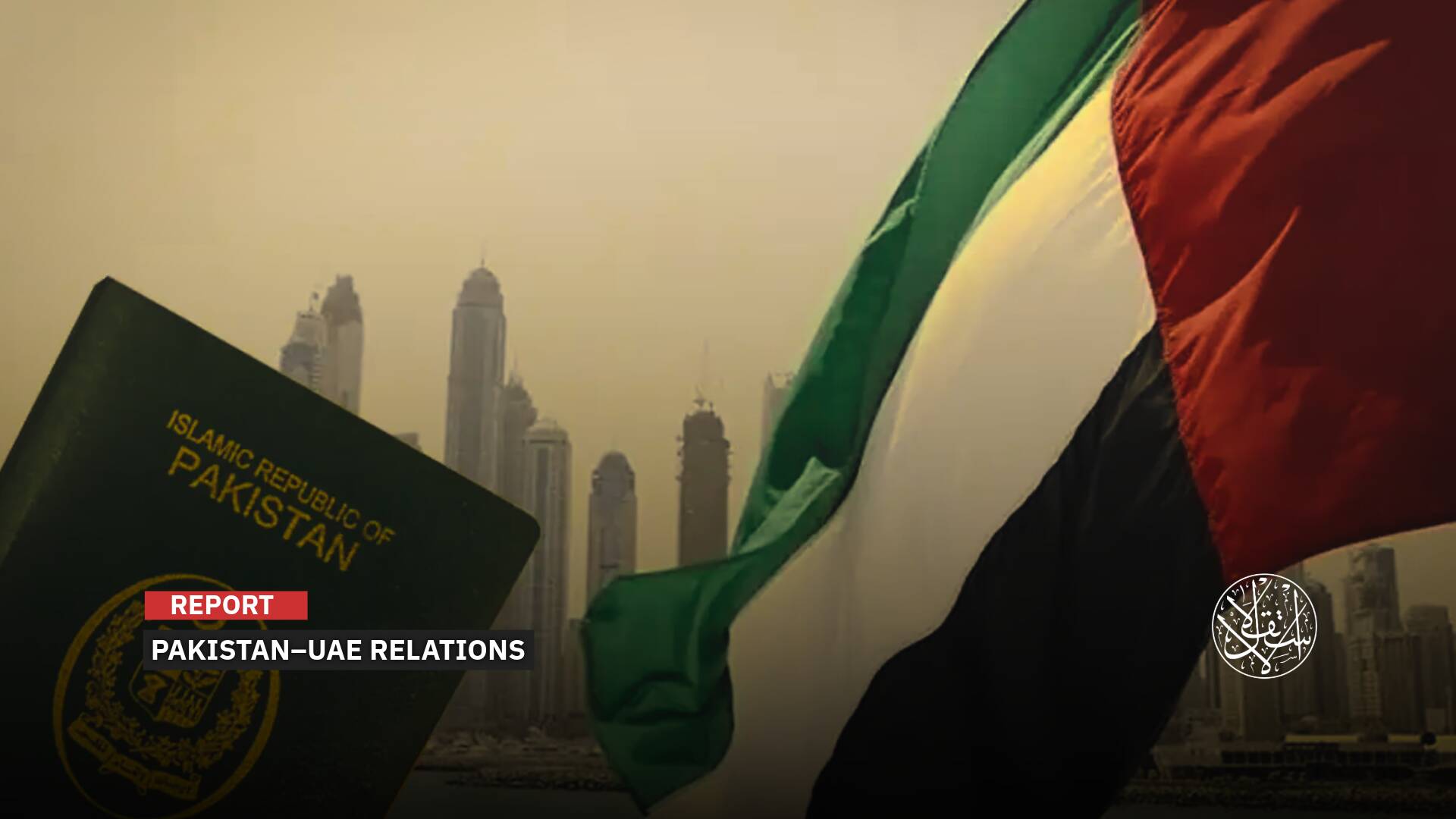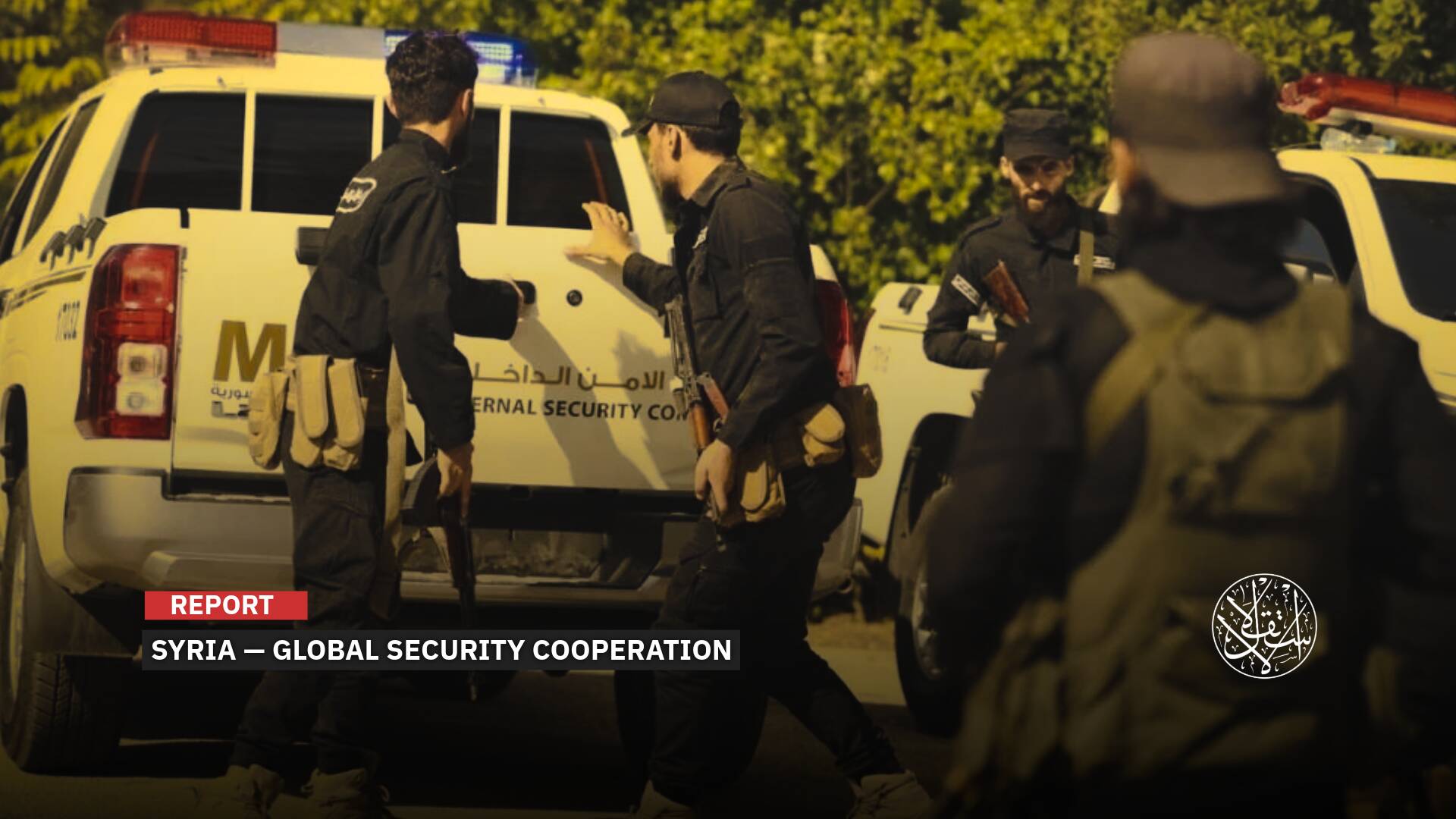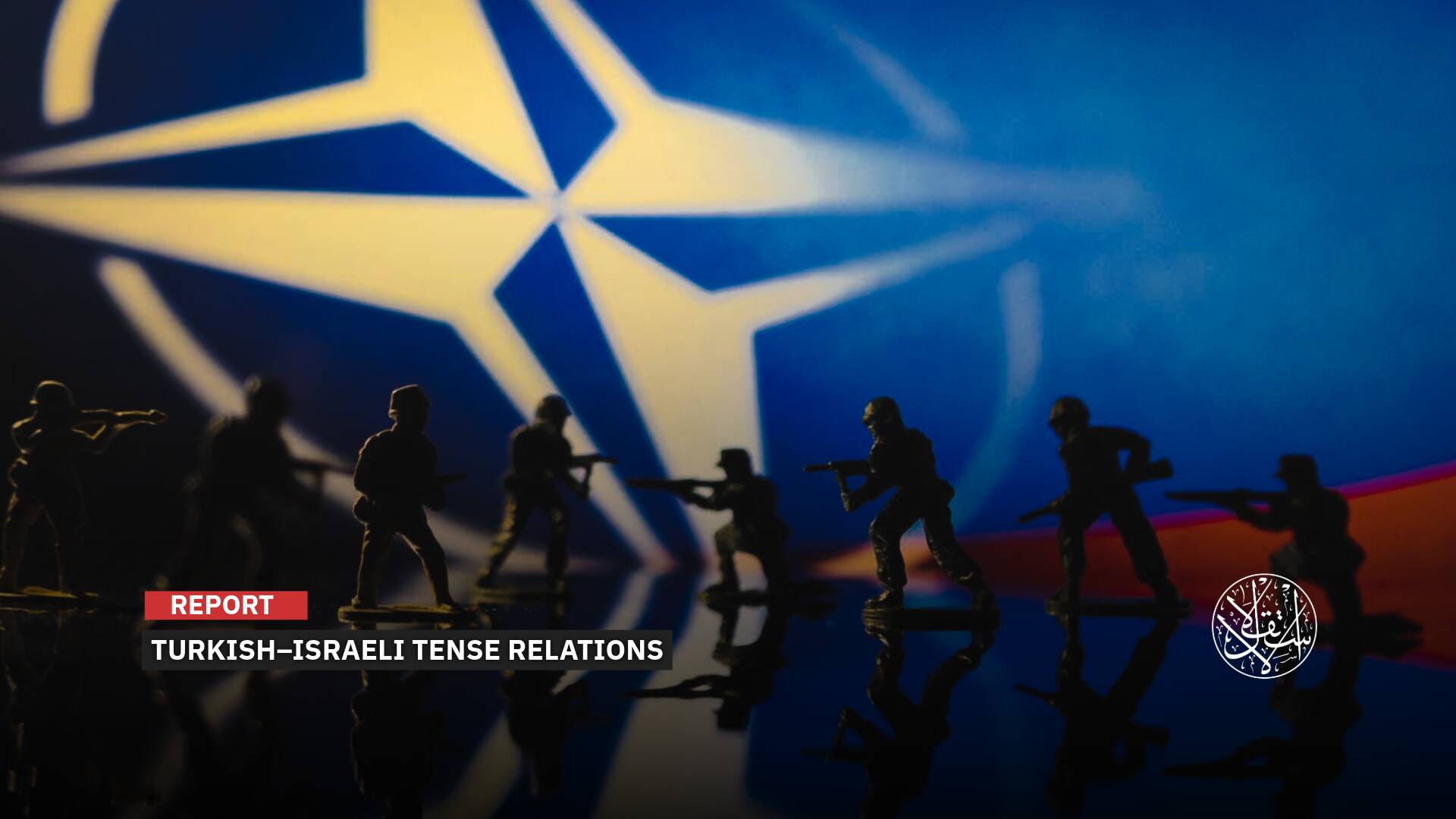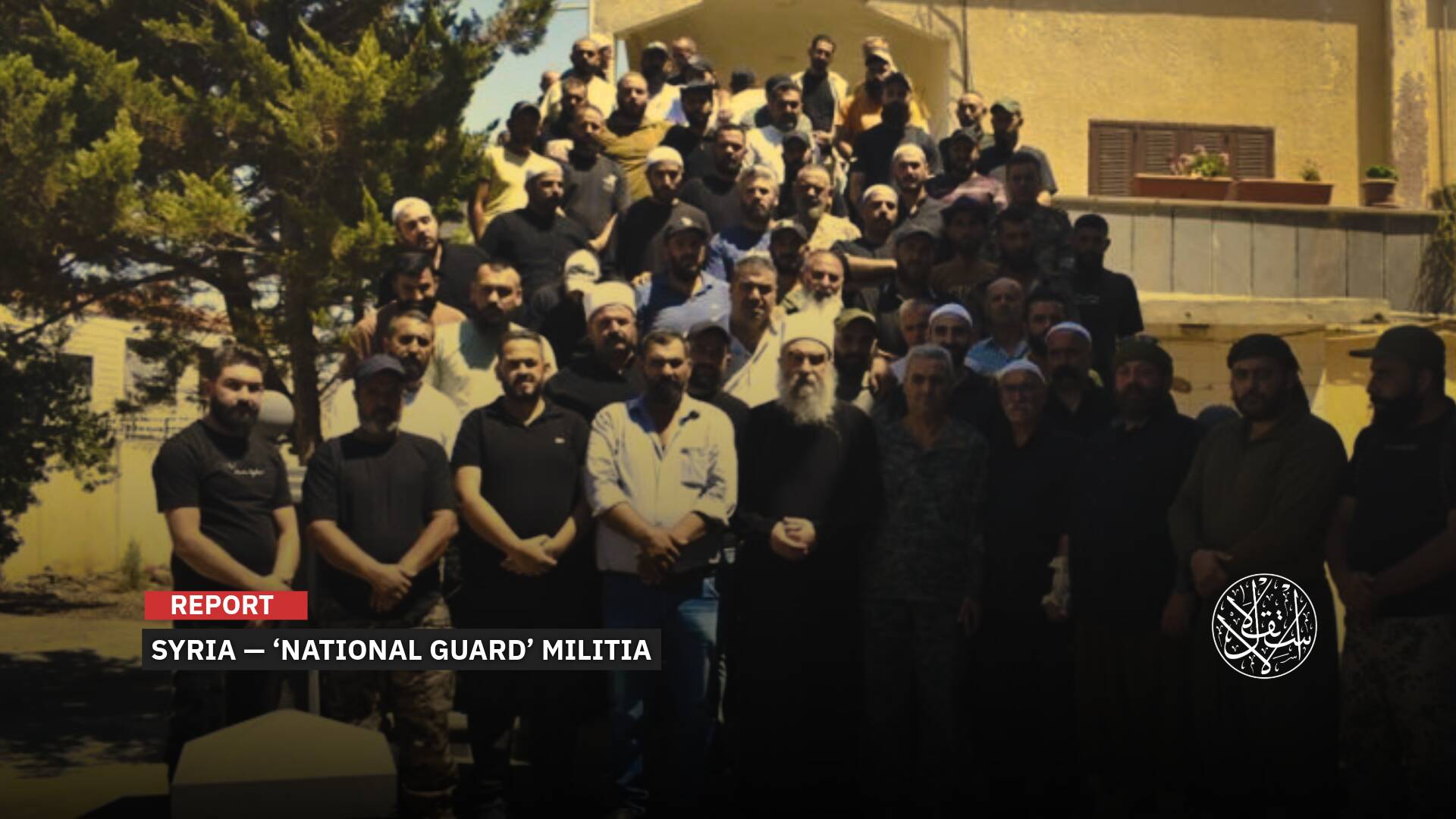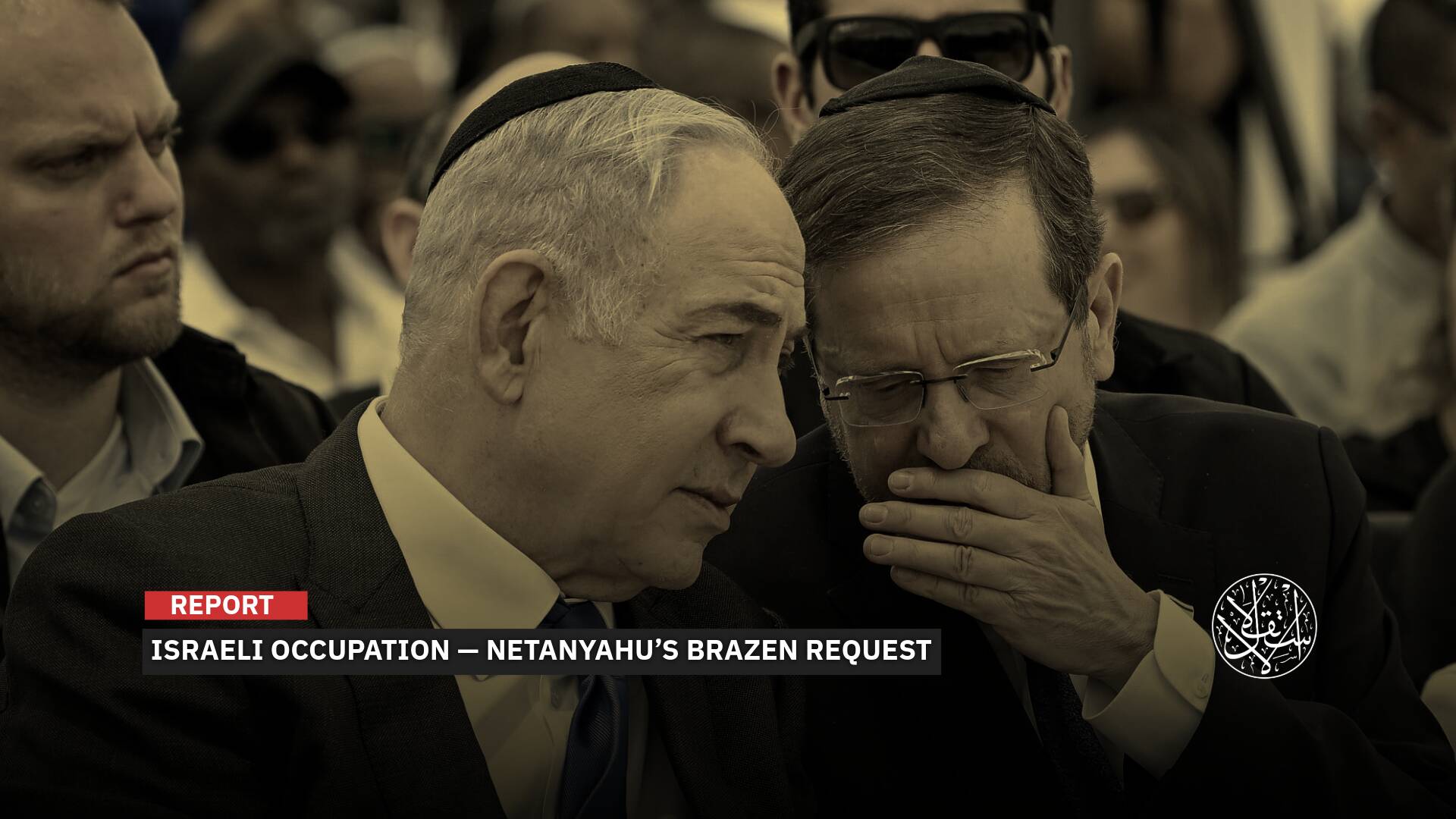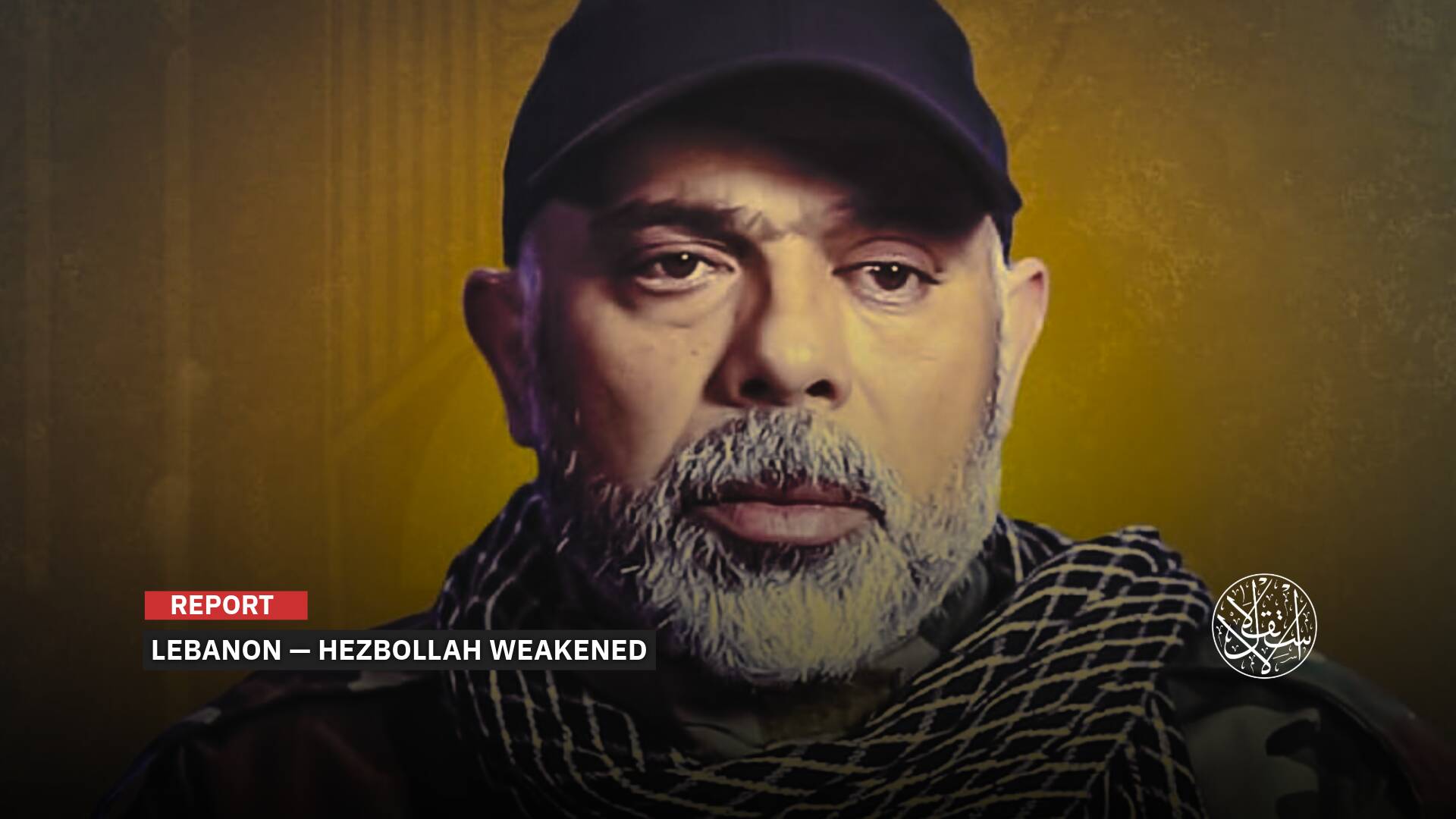Why Is the UAE Planning To Establish Military Bases in the Central African Republic?
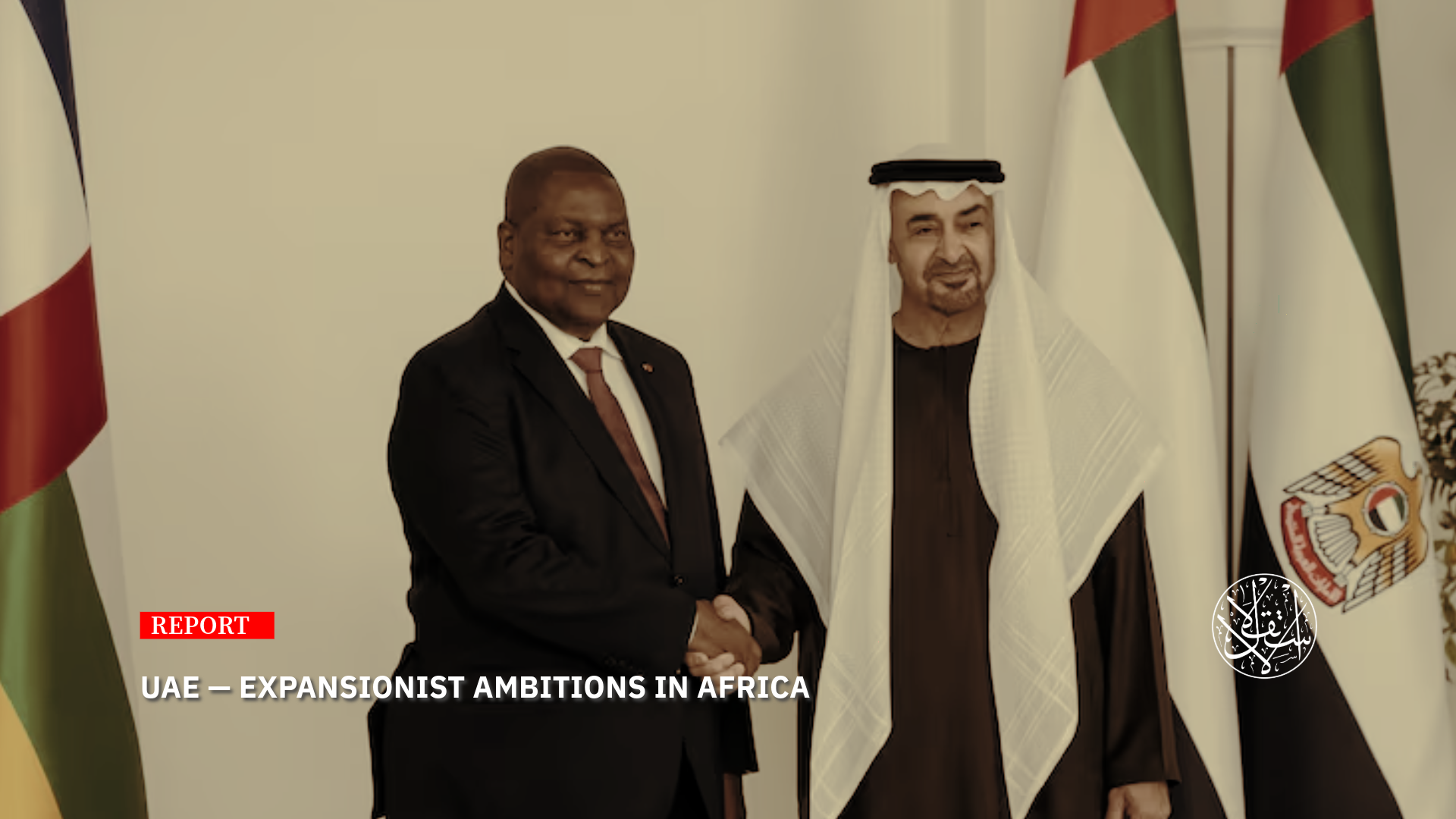
The UAE wants to turn Central Africa into a sub-regional security hub.
Central African Republic’s President Faustin-Archange Touadera is seeking to deepen his country’s ties with the United Arab Emirates by allowing the Gulf state to deploy military forces on Central African soil, with a particular focus on the border region with Sudan.
From Abu Dhabi to Bangui, UAE President Mohammed bin Zayed is pushing to expand his network of military alliances and strategic partnerships across Africa.
Central to this ambition is the Central African Republic’s pivotal geographic location — a potential linchpin in Abu Dhabi’s broader security agenda in the region.
Bin Zayed’s move is widely seen as a bid to pave the way for the establishment of Emirati military outposts, while also securing access to the Central African Republic’s vast natural resources — with gold topping the list.
According to Africa Intelligence, writing on 31 March 2025, the UAE’s ambitions extend beyond boots on the ground.
Abu Dhabi is reportedly aiming to build a regional intelligence-gathering and processing network, signalling a deeper strategic interest in the heart of the continent.
The UAE also hopes to use Central African territory as a strategic springboard for the deployment of troops and weapons into Sudan — a conflict in which Abu Dhabi has emerged as a key player, backing the Rapid Support Forces (RSF) militia led by Mohamed Hamdan Dagalo, known as Hemedti.
This military diplomacy, Africa Intelligence notes, is driven as much by financial calculations as by a desire to transform the Central African Republic into a sub-regional security hub — an ambition that appears to align closely with President Touadera’s own agenda.
Yet, the magazine warns, in aligning himself so closely with the UAE, Touadera is embarking on a risky venture.
Behind the scenes, he is seeking to deflect from a litany of domestic failings and to rein in the activities of hostile armed groups operating within the country.

Why the Central African Republic?
The question inevitably arises: why has Mohammed bin Zayed chosen this particular corner of the African continent to establish a new military and intelligence foothold?
According to Africa Intelligence, the answer lies in geography. The UAE has reportedly set its sights on the north of the Central African Republic — with a particular focus on the Vakaga region, which borders both Chad and Sudan.
This remote and volatile zone is seen as strategically vital to Abu Dhabi’s expanding regional ambitions.
The interest in Vakaga is not coincidental. The region has witnessed intermittent operations by the RSF militia over the past two years, ever since the outbreak of war in Sudan.
The UAE has faced mounting accusations of backing the RSF militia — providing the paramilitary group with funding, weapons, and even medical treatment for its wounded fighters.
These allegations have escalated to the international stage, with Khartoum filing a case against Abu Dhabi at the International Court of Justice.
On 15 June 2024, a report by UN experts revealed that Sudan’s RSF militia have been using the border town of Umm Dafuq — adjacent to the Central African Republic — as a “major logistical hub” and a “supply line” for recruiting new fighters.
Meanwhile, in the northern town of Birao, the capital of Vakaga prefecture, negotiations are reportedly underway between the UAE and Central African authorities.
At the heart of the talks: access to a small airstrip that could serve to bolster Abu Dhabi’s military logistics near the Sudanese front — a move widely seen as aimed at sustaining RSF militia supply lines.
In recent weeks, work has reportedly been underway to make the airstrip suitable for small aircraft — in a zone partially controlled by members of Russia’s Wagner Group, who are said to be overseeing the activities and visits of Emirati survey engineers.
For Emirati strategists, the site represents an opportunity to diversify their regional footprint and reduce reliance on the Umm Jarras airbase in northeastern Chad — a key military asset currently under UAE control.
From Umm Jarras to Vakaga?
This new site in the Central African Republic — reportedly used to funnel military equipment to the RSF militia — has now become a high-priority target for the Sudanese army.
On 23 March 2025, Sudanese General Yasser al-Atta went so far as to call it a “legitimate target,” placing it in the same category as N'Djamena airport in Chad, which Khartoum also regards as a hub for hostile military logistics.
One key reason behind the UAE’s pivot from Umm Jarras to Vakaga may lie in the growing internal tensions within Chad itself.
Abu Dhabi’s use of Chadian territory and airstrips has provoked backlash from prominent political figures and several high-ranking generals from the influential Zaghawa ethnic group.
Many have openly criticised President Mahamat Idriss Deby for his alliance with the UAE and what they describe as his de facto involvement in the war in Sudan.
Despite strong opposition from within his own tribe, President Deby remains heavily reliant on military and financial support from the UAE.
The situation has become even more complicated following the killing of two Chadian colonels in Darfur on 22 March 2025, who were struck by a drone strike.
Their location near al-Fashir was reportedly revealed after their satellite-connected phones were hacked.
In the early hours of the morning, an Emirati drone, launched from the Umm Jarras airstrip, targeted the convoy of the two Chadian colonels, which consisted of four-wheel-drive vehicles.
The strike triggered a deep crisis within the Chadian military establishment, and it seems to have been one of the key factors driving Abu Dhabi’s decision to deepen its military presence in the Central African Republic as an alternative.

Shakhboot's Role
Abu Dhabi plans to gradually expand its presence in the Central African Republic, using the small airstrip in Birao as a testing ground for this new military partnership.
The aim is not merely to transform the airstrip into a military base, but also to establish it as a logistical hub for the transport of equipment into Sudan, as well as a staging point for the beleaguered RSF militia.
The RSF militia, which has suffered heavy defeats in recent months, has lost control of several key strategic states, including the pivotal areas of Omdurman in Khartoum and the Gezira state.
President Faustin-Archange Touadera of the Central African Republic has discussed the ongoing, secretive deal with Emirati State Minister Shakhboot bin Nahyan, who visited Bangui at the end of November 2024.
Shakhboot, a key architect of the agreement between Abu Dhabi and Bangui, is credited with initiating the deal and weaving together its intricate details.
The discussions continued into early March 2025, with talks held in Abu Dhabi between the Emirati president and the defense ministers of both nations, culminating in the signing of a strategic military agreement during this official visit.
Abu Dhabi's Calculations
The UAE has not ruled out the possibility of relocating its base from Umm Jarras to Birao in the long term, with potential access to Bangui's airport.
However, the plan to establish a military logistics hub in the Central African Republic remains under careful consideration.
The UAE’s involvement in the region is driven by its own strategic calculations, and its actions are seen as potentially inflaming an already volatile area.
Such a move threatens to undermine the authority of Chadian President Deby and could lead to unpredictable developments in the UAE’s proxy war in Sudan.
There are also calculations to be made regarding the Central African Republic itself, particularly its internal dynamics.
Despite growing discontent among Touadera’s allies and a rift with several senior military and security leaders, who are said to favor Hemedti over the Sudanese army, the Central African president has so far managed to maintain his ties with the official camp in Khartoum.
This alignment is particularly significant given the Sudanese army’s growing dominance in the country, bolstered by military support from Moscow, Cairo, and Tehran.
On 25 March 2025, Sudanese Army Chief Abdel Fattah al-Burhan, well aware of the UAE’s plans in the Central African Republic, expressed his concerns to President Touadera.
In a bid to ease tensions, al-Burhan sought to arrange a meeting between Touadera and Mahamat Deby, hoping to persuade Abu Dhabi to scale back its support for Hemedti. However, these efforts have so far proven unsuccessful.
On the ground, the RSF militia, bolstered by Emirati support, are struggling to maintain the balance of power after suffering devastating defeats in Khartoum, which was recaptured by the Sudanese army on 26 March.
It now appears their influence is once again confined to Darfur, a development that alarms the UAE, which understands that defeating the insurgency would signal the end of its broader project in Sudan.

Touadera's Game
Mohammed bin Zayed is exploiting the fluctuations in President Touadera's relationship with the Sudanese army and al-Burhan.
According to French publication Mondafrique, Touadera's ties within Sudan have been notably erratic; he struck an agreement with the RSF militia shortly after their breakaway from the Sudanese Armed Forces in December 2022.
At the time, Touadera sought assistance from Hemedti to counter the "Central African People's Front," an armed opposition group, as reported by Mondafrique on 11 June 2024.
However, by the beginning of 2024, Touadera began to adopt a more neutral stance on the war in Sudan.
In fact, he even reached out to Algerian President Abdelmadjid Tebboune, urging him to mediate a resolution to the Sudanese conflict.
According to Mondafrique, the Central African Republic’s desire to strengthen its alliances, often lacking genuine coherence, seems overstated — particularly as non-African powers involved in Sudan, such as the UAE and Russia, continue to view Bangui as a player with limited diplomatic leverage.
Nevertheless, the Central African Republic consistently proves its appeal as a potential military logistics hub.
European Concerns
On the other hand, the Central African Republic’s deepening ties with the UAE, which could pave the way for the establishment of military and intelligence outposts on its soil, is raising serious concerns among the country’s partners and European donors.
The United Nations and its mission in the Central African Republic have expressed grave concerns over the potential for the conflict in Sudan to spill over into the region on a much larger scale, driven by the UAE and Russia’s expansionist policies in the area.
The British newspaper The Guardian reported on 24 December 2024 that the UAE and its military advisers view the borders of the Central African Republic as of strategic economic importance, given the country’s vast untapped mineral wealth.
As Abu Dhabi considers establishing a military intelligence and analysis hub in the Central African Republic, its interests are not limited to security; the UAE also has significant military and economic stakes, driven by a desire to exploit strategic minerals, particularly gold, in the medium term.
The newspaper cited a significant rise in the illegal gold trade from Africa to Dubai.
A report by the NGO Swiss Aid revealed a discrepancy of 2,569 tons between official African exports to the UAE and the UAE’s reported imports from Africa between 2012 and 2022, valued at $115.3 billion.
“African countries need all the financing and trade they can get,” said Ken Opalo, an associate professor at Georgetown University. “However, there is also the opportunity for the attention to breed criminality – like we are seeing in the gold sector.”
Sources
- Faustin-Archange Touadera paves the way for Emirati and Russian military sites
- UN Report Accuses Sudan's Rapid Support Forces of Recruiting Fighters from the Central African Republic [Arabic]
- Mohammed bin Zayed: The Economic Partnership Agreement Between the UAE and the Central African Republic Opens New Avenues for Cooperation [Arabic]
- A Game of Ambiguity Played by the President of the Central African Republic in His Dealing with Sudan [Arabic]
- UAE becomes Africa’s biggest investor amid rights concerns


